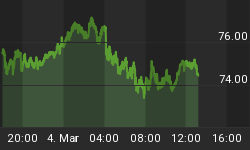The Yen's Perfect Storm escalated overnight amid the combination of unexpected decline in Japanese unemployment and falling global equity futures following the Dubai fallout. FX traders shall be eager to find out how Japanese officials will follow up on their threats to stabilize their soaring currency in the midst of the latest bout of global risk aversion, which was bound to emerge considering equity indices' largely-dollar driven gains (see previous notes on unsustainability of currency-driven stock rallies).
Chances of a successful yen-selling intervention (success = prolonging yen weakness) would largely depend on officials' ability to stabilize falling world bourses, rather than the volumes of actual yen selling. And thus, it would be irresponsible to assume that yen-bound FX flows (new speculative yen longs & unwinding of yen shorts) be halted at a time when risk appetite has been violently shaken by a "new source of event risk" (Dubai fallout rather than the usual suspects of weak US macro, US/UK banks or Eastern European banks).
The yen signals were all here. Our warnings from Nov 10th "More Yen Gains Ahead" were largely founded on the changing face of the carry trade, whereby the US dollar had replaced the yen as the main funding currency to these trades (courtesy of the Fed's dovish rhetoric), especially after US dollar 3-month LIBOR fell below its JPY counterpart in August, for the first time ever in August. The yen's diminishing role as a funding currency was also a result of the Bank of Japan's announcement to end purchases of corporate debt by year-end.
Japan Must Learn from US on How to Weaken its Currency Aside from threatening at coordinated intervention action (central banks selling the yen), Japanese officials can take a page from the Federal Reserve and resort to fresh liquidity injections. One way would be for the Bank of Japan to reverse last month's decision that it would halt purchasing corporate debt beyond year-end. Markets must also be aware of the emerging rift between the Japanese Ministry of Finance (new political power), criticizing the Bank of Japan (appointed & approved by LDP) and the central bank's rosy forecasts. Thus, Japanese bureaucrats may continue talking down the currency, but as long as the BoJ remains insistent on gradually exiting its strategy of emergency liquidity measures & issuing brighter economic outlook, yen downside would remain limited--especially if the Dubai Debt fallout is accelerated in world bourse via year-end profit-taking.















